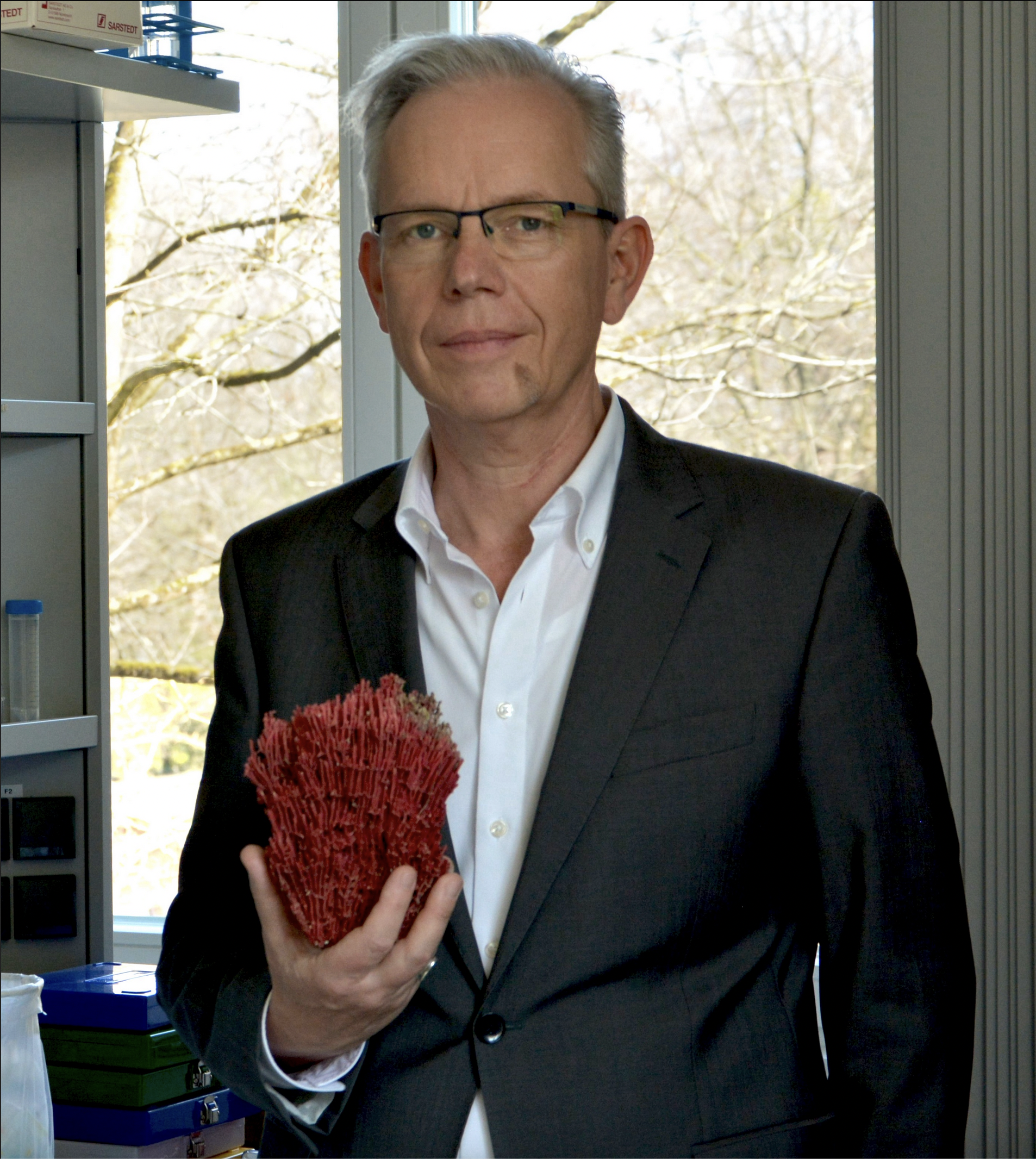 Bio: Gert Wörheide is Professor (Chair) for Geobiology at the Ludwig-Maximilians-Universität (LMU) Munich. He is also the Director of the Bavarian State Collections for Paleontology and
Geology and the Paleontological Museum in Munich (Germany). He received his Dr. rer. nat.in Geobiology in early 1998 at the University of Göttingen in Germany. After a PostDoc at the Queensland Museum and the
University of Queensland in Brisbane (Australia), he returned to Göttingen in 2002 as a Junior Professor for Molecular Geobiology. In 2008 he took up the full Professorship in Munich and served the Faculty
of Geosciences of the LMU as Dean and Vice-Dean from 2011 to 2021. In 2013 he co-founded the international Master’s Program "Geobiology & Paleobiology" at the LMU. Since 2019 he is an elected member of
the Academia Europea, the European Academy of Sciences.
Bio: Gert Wörheide is Professor (Chair) for Geobiology at the Ludwig-Maximilians-Universität (LMU) Munich. He is also the Director of the Bavarian State Collections for Paleontology and
Geology and the Paleontological Museum in Munich (Germany). He received his Dr. rer. nat.in Geobiology in early 1998 at the University of Göttingen in Germany. After a PostDoc at the Queensland Museum and the
University of Queensland in Brisbane (Australia), he returned to Göttingen in 2002 as a Junior Professor for Molecular Geobiology. In 2008 he took up the full Professorship in Munich and served the Faculty
of Geosciences of the LMU as Dean and Vice-Dean from 2011 to 2021. In 2013 he co-founded the international Master’s Program "Geobiology & Paleobiology" at the LMU. Since 2019 he is an elected member of
the Academia Europea, the European Academy of Sciences.
Gert’s research group focuses on the biodiversity and evolution primarily of marine organisms and their symbionts, and on the evolution of biomineralization, with a special focus on sponges and (octo)corals. He has published more than 200 articles in leading international journals.
More on Gert Wörheide's work can be found here: http://www.geobiology.eu
Abstract: The world's oceans are the cradle of life on our planet, they host the highest diversity of species, and provide highly valuable ecosystem services to humankind. The Indo-Pacific is the world's largest
marine biogeographic region, covering tropical and subtropical waters from the Red Sea and western Africa to the Easter Islands in the eastern Pacific. Although the marine environment is under severe pressure due to unsustainable
resource extraction and the effects of climate change, the diversity of species and their biogeographic ranges are, for example across the Indo-Pacific, still surprisingly underexplored. This especially applies to many marine
invertebrates that provide essential ecosystem functions, such as sponges. However, knowledge about the Spatio-temporal distribution and changes in species distributions is needed to effectively manage and conserve marine resources.
In this lecture I will present an overview of our work on Indo-Pacific marine invertebrates and showcase how we use DNA barcoding, genomics and transcriptomics to unravel the species diversity and evolution of sponges, placozoans, and crown-of-thorns seastars (COTS). I will show that the Indo-Pacific species diversity of sponges, placozoans, and COTS is still underestimated because high levels of regional endemism are apparent. However, many species are morphologically indistinguishable (i.e., cryptic) and can only be detected by analyzing gene and genome data. Especially the Red Sea is home to endemic species, and I will provide an example of a new Red Sea species of crown-of-thorns seastars from Saudi Arabia. A deeper and more detailed understanding of species diversity and their geographic distribution will advance a better appreciation of regional biogeographic differences and aid in developing more fine-scaled management and conservation of marine resources.

